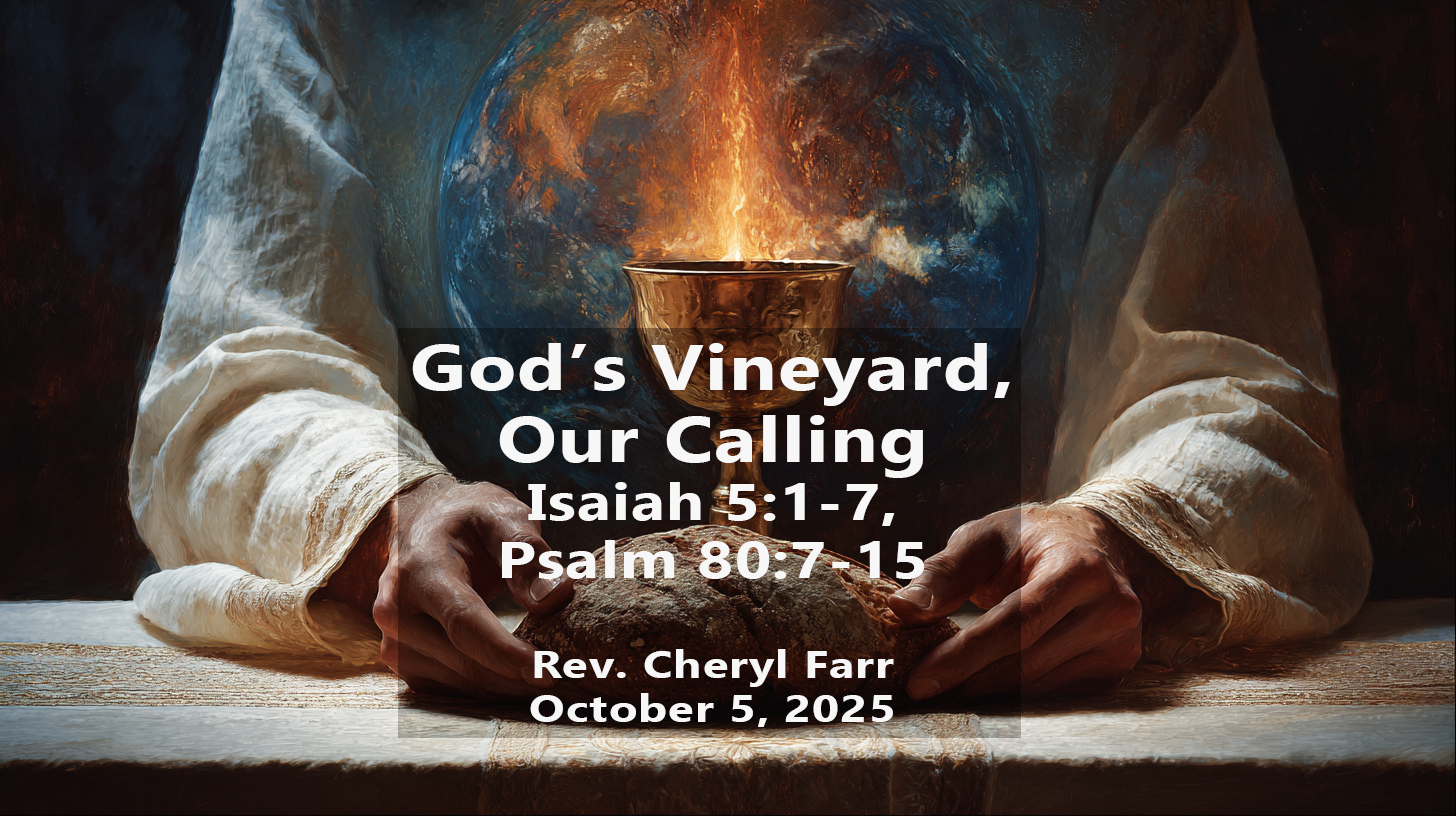 Isaiah paints the picture of a vineyard lovingly tended by its owner. Everything was prepared with care—the ground cleared, the vines chosen, the watchtower and winepress built. Yet instead of sweet grapes, it produced only sour fruit. The prophet makes it clear: the vineyard is God’s people. God had freed Israel, settled them in a good land, given them His presence and His law. What He longed to see was justice and righteousness, but instead there was violence and cries of the oppressed. The psalmist in Psalm 80 picks up the same vineyard image, pleading with God to restore what had been broken down and asking Him to watch over His vine once more.
Isaiah paints the picture of a vineyard lovingly tended by its owner. Everything was prepared with care—the ground cleared, the vines chosen, the watchtower and winepress built. Yet instead of sweet grapes, it produced only sour fruit. The prophet makes it clear: the vineyard is God’s people. God had freed Israel, settled them in a good land, given them His presence and His law. What He longed to see was justice and righteousness, but instead there was violence and cries of the oppressed. The psalmist in Psalm 80 picks up the same vineyard image, pleading with God to restore what had been broken down and asking Him to watch over His vine once more.
This imagery presses us to ask about our own fruit. Israel’s calling was to embody life under God’s reign so that the nations could see His goodness. Yet they had failed, producing fruit that was bitter instead of sweet. Jesus carried this same theme forward, reminding His followers in John 15 that He is the vine and we are the branches, called to bear much fruit by remaining in Him. It’s not enough to have the appearance of growth—attendance, activity, or influence—if the fruit is lacking in love, mercy, and justice. God still examines His vineyard and asks what kind of fruit is being produced.
On days like World Communion Sunday, the vineyard stretches wider than our personal lives or local congregations. Across continents and cultures, believers share in the bread and cup, bound together as branches of one vine. This global fellowship is a reminder that God’s mission is not confined to one place or people. It is entrusted to the whole body of Christ. Communion shows us both the vastness of God’s vineyard and the high cost of the mission we share—Christ’s own body and blood, given for the sake of the world.
The invitation is for each of us to bring our failures, our barrenness, and even the sour fruit of our lives to the table. There, Christ restores, nourishes, and reconnects us to Himself, the true Vine. The Spirit produces in us what we cannot create alone—fruit that looks like Jesus: forgiving, generous, merciful, and just. As we rise from the table, we return to the vineyard of the world carrying both the gift and the responsibility of bearing fruit that will last, fruit worthy of the One who gave everything for us.